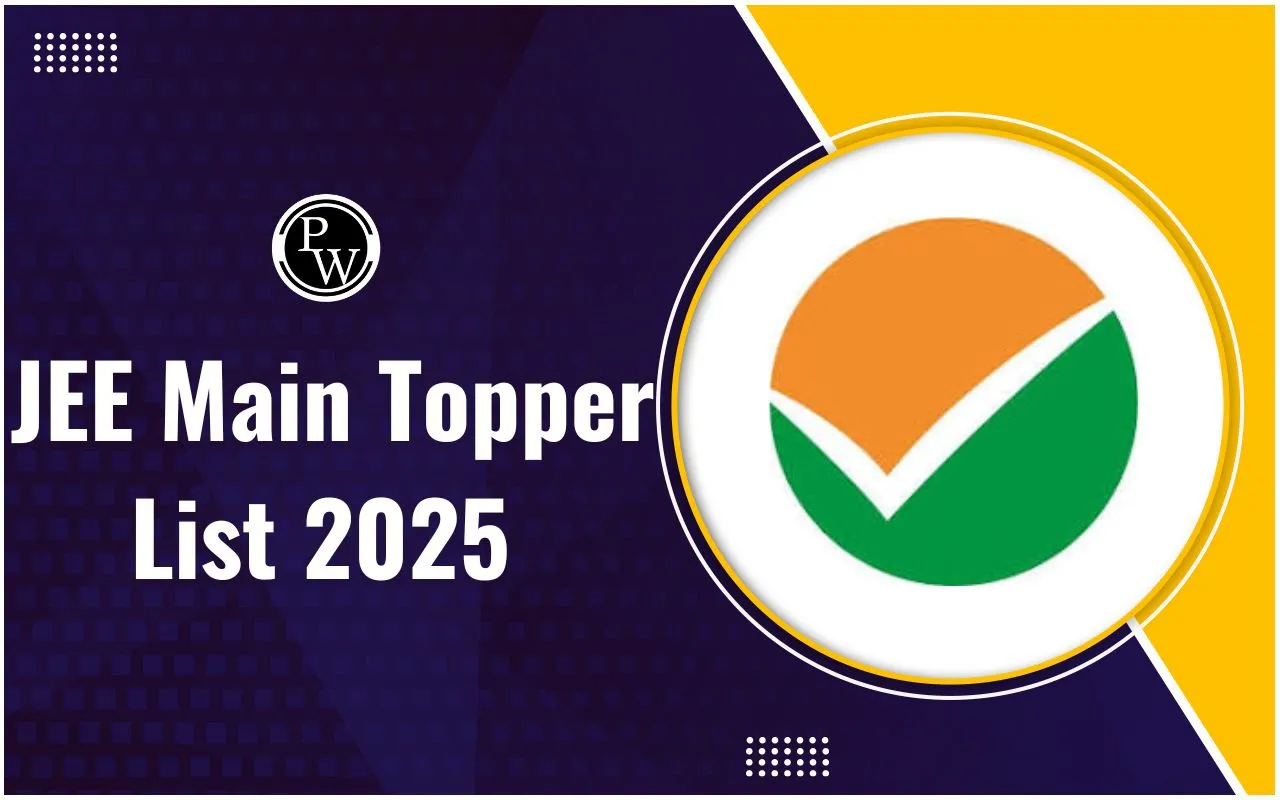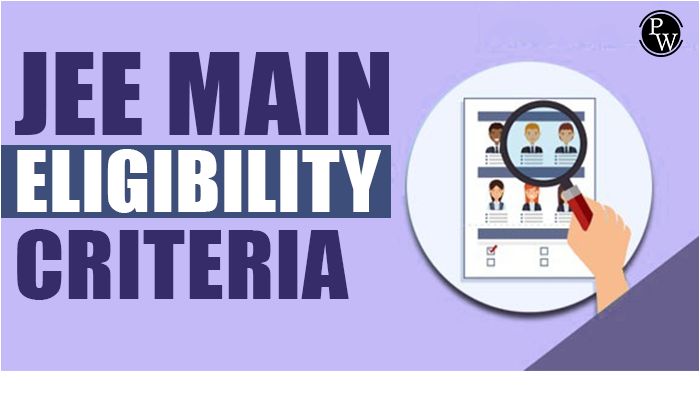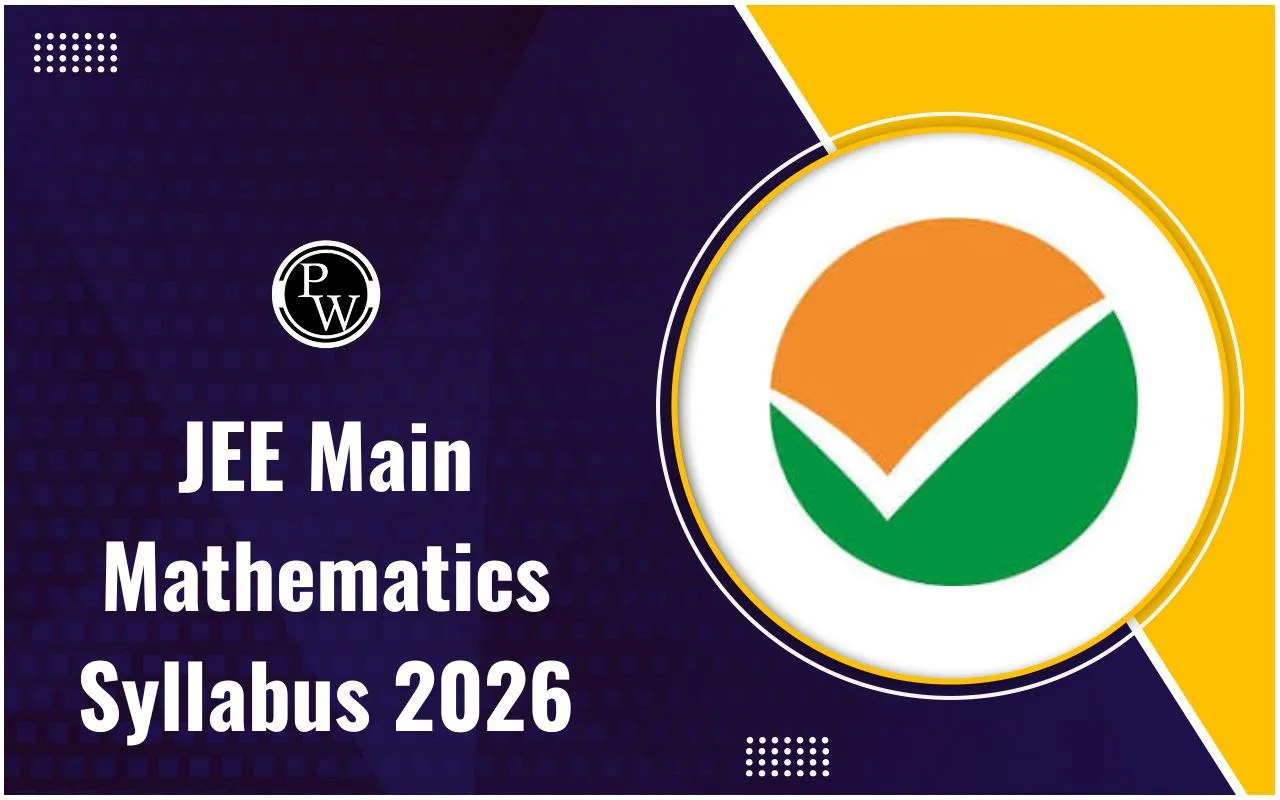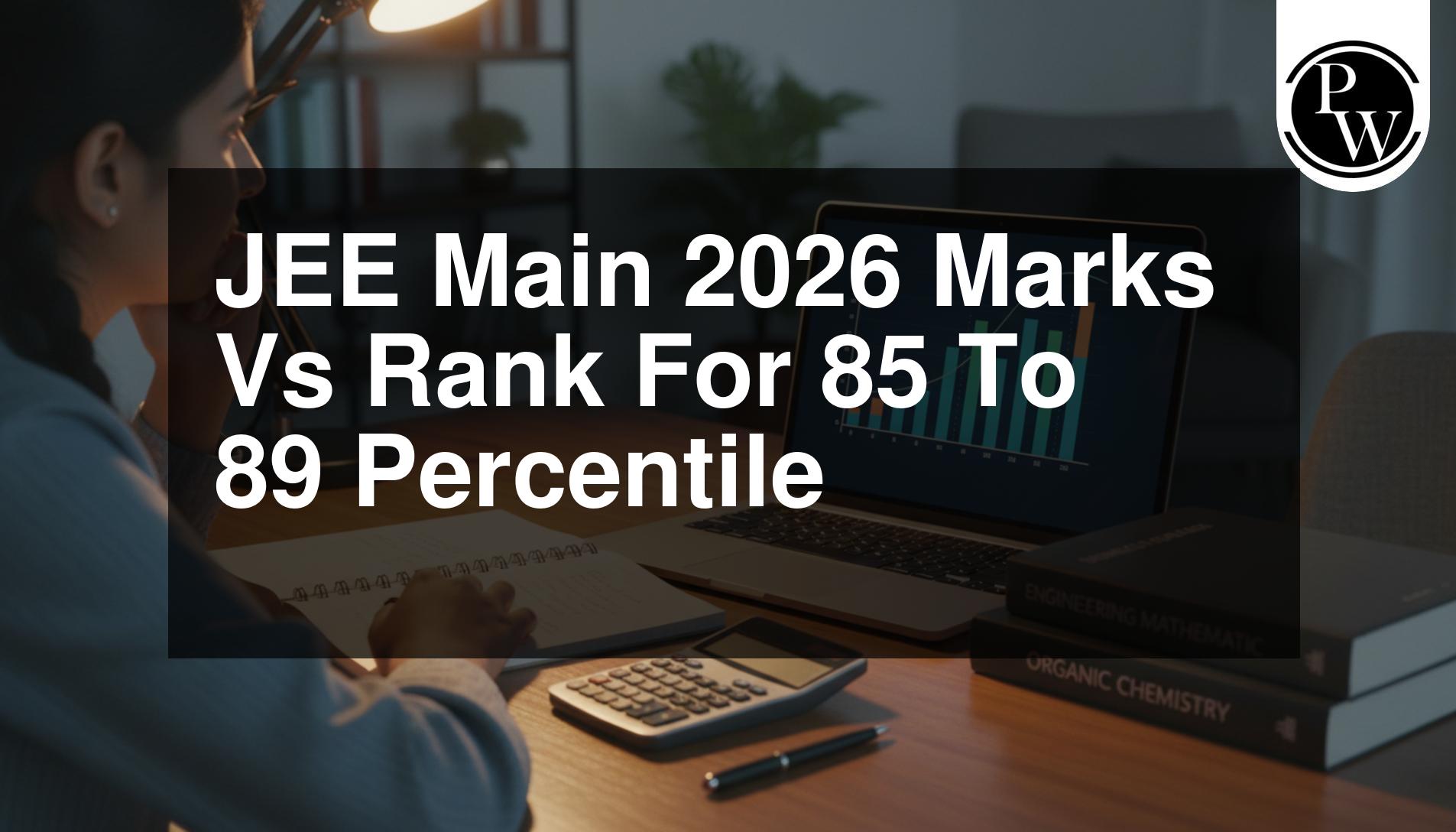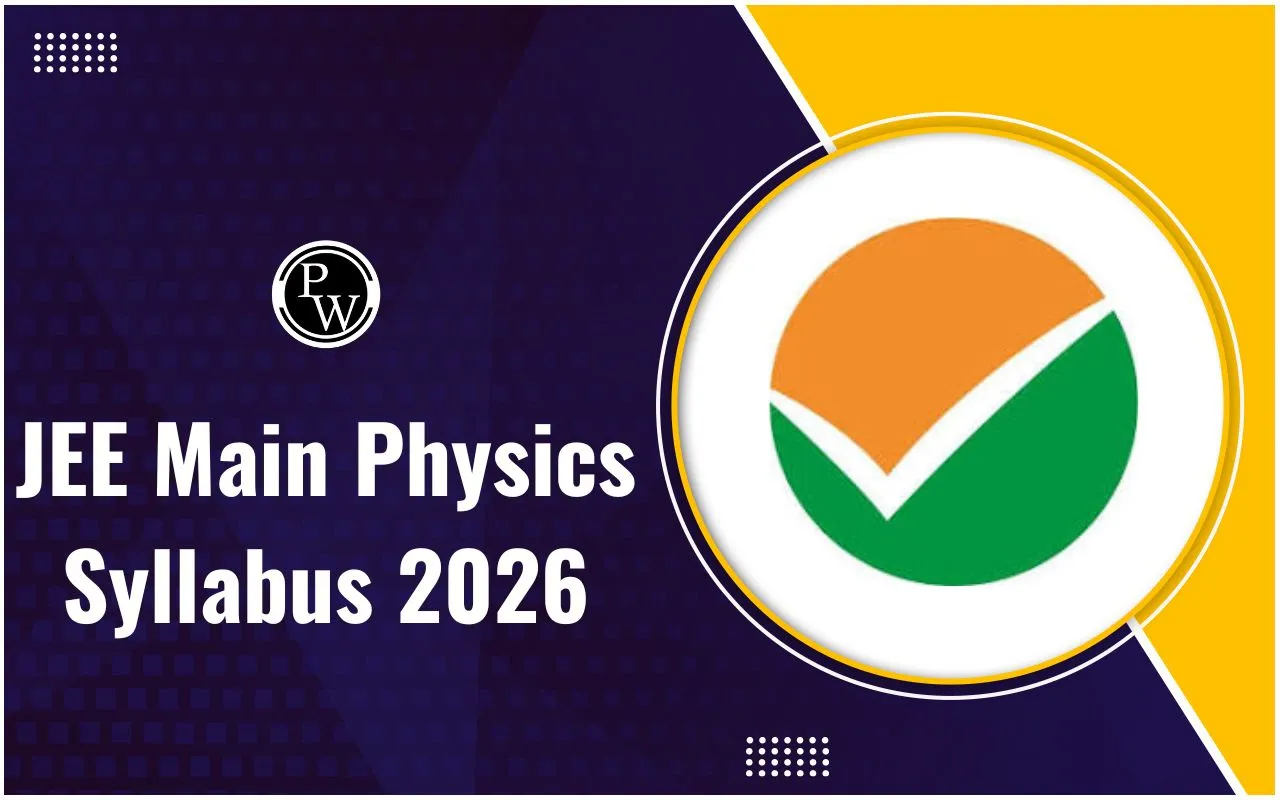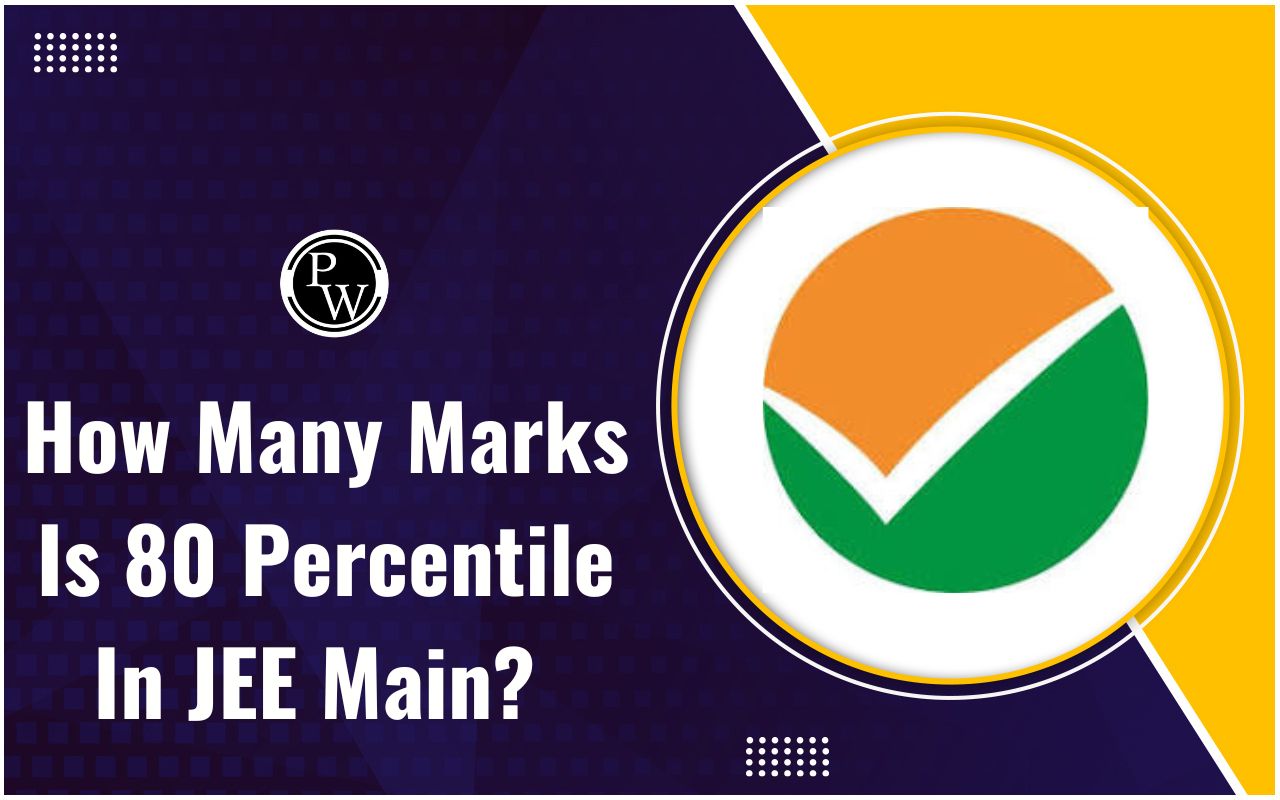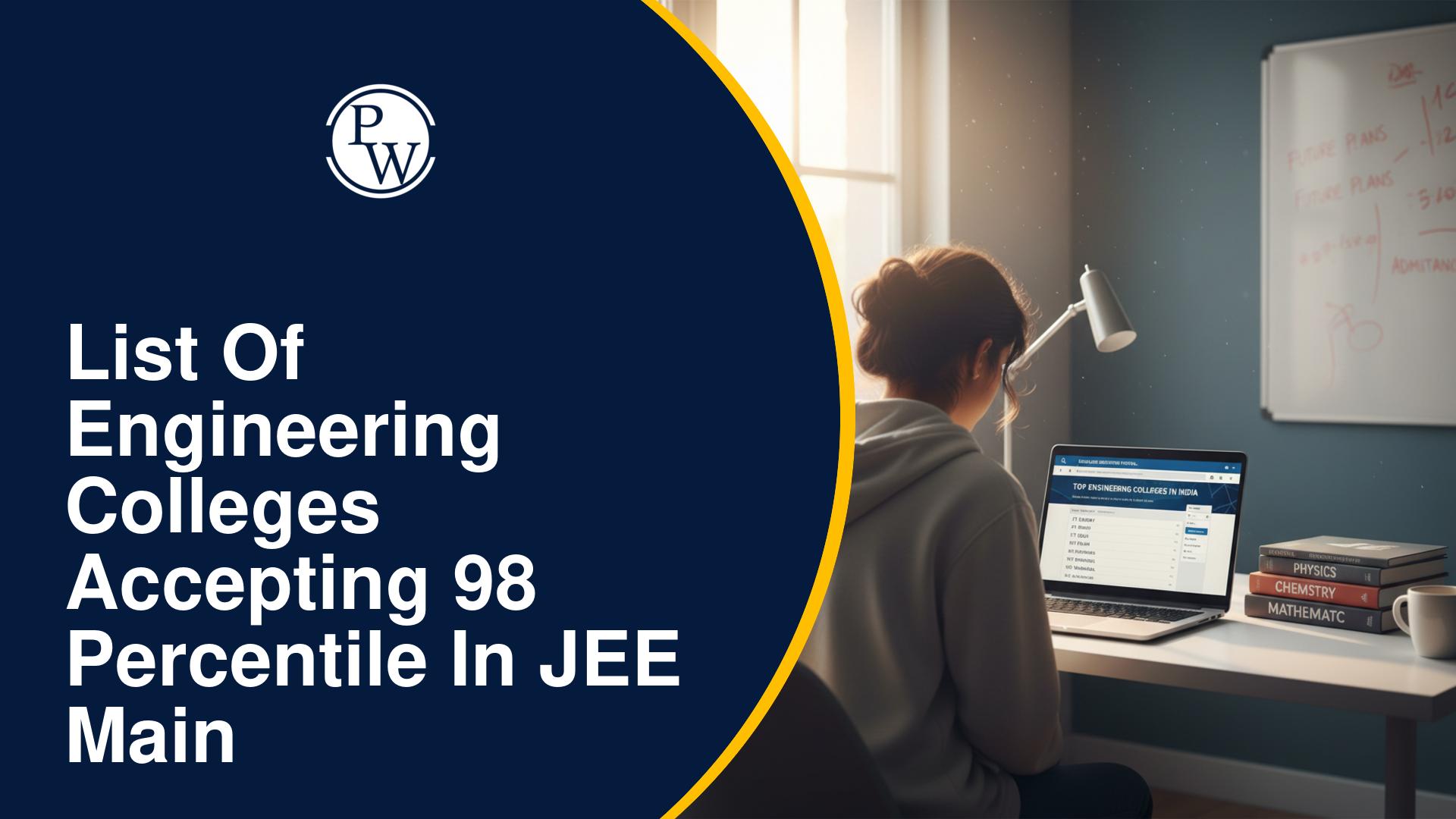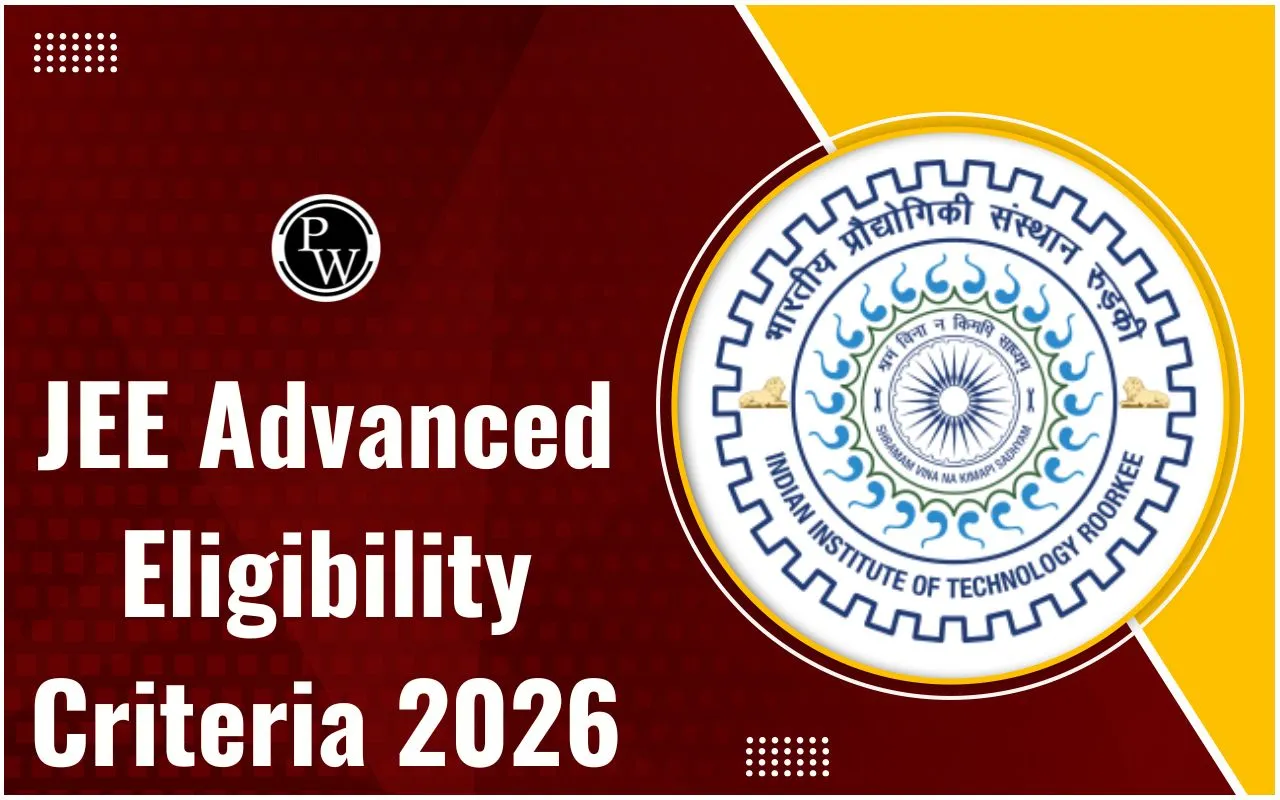
Targeting JEE 2027 Exam: The Joint Entrance Examination (JEE) provides a career in engineering from highly reputed institutions like IITs, NITs, and IIITs in India. JEE 2027 being your dream, whether you're a Class 11, Class 12, or a dropper student, now is the time to begin a well-planned journey to fulfill your dream of becoming an engineer. Explore below to learn more about the exam and prepare effectively.
Targeting JEE 2027 Exam Overview
The JEE (Joint Entrance Examination) is considered to be one of the most desired engineering entrance exams in India. For lakhs of aspirants waiting anxiously to join Top institutes like IITs, NITs, and IIITs, planning for JEE 2027 requires a clear-cut and strategic long-term preparation plan.
JEE 2027 Exam Overview requires a strong basis of Physics, Chemistry, and Mathematics from Classes 11 and 12, consistent hard work, time-based revision, and effective problem-solving techniques. As competition is Tough, advance planning, good guidance, and discipline are necessary to crack it.
Regardless of whether you are a Class 11 student starting off, a Class 12 student developing ideas, or a dropper planning to improve, knowledge of the JEE exam pattern for 2027, syllabus, and subject-wise weightage is the starting point to crack this competitive exam.
Also Check:
Online Coaching for JEE 2027 Exam
Since the JEE exam is still a significant process to get admission into prominent engineering colleges in India, students need effective and smart ways of preparation in order to make a difference among the crowd. You can be a Class 11 or 12 student, or a dropper expecting JEE 2027. Online coaching is a comfortable, adaptable, and affordable way to prepare for the exam at home.
Physicswallah Online Coaching for JEE 2027 Exam provides live classes, video lectures, daily doubt-clearing sessions, practice tests, and mentorship from teachers. The facility of tailored learning and exposure to good teachers has resulted in students increasingly relying on online portals to be regular and devoted to their JEE preparation.
Targeting JEE 2027 Online Courses
Online coaching is a wise option for JEE 2027 aspirants because it is flexible, has faculty support, and has beneficial study tools. Students can study from home through online courses, join live interactive classes, raise doubts, and take frequent mock tests, all of which one needs to prepare well for JEE 2027.
|
Targeting JEE 2027 Online Courses |
||||
|
Batch Name |
Start Date |
End Date |
Subject Covered |
Special Features |
|
14th July 2025 |
30th Jun 2026 |
Physics, Chemistry, Maths |
1. PDF Notes on the PW App 2. Daily Practice Problems (DPPs) with Video Solutions 3. Peer-to-Peer Doubt Solving 4. Scheduled Tests 5. AITS 6. Revision Classes |
|
|
16th July 2025 |
30th Jun 2026 |
Physics, Chemistry, Maths |
1. PDF Notes on PW App 2. DPPs with Video Solutions 3. Peer-to-Peer Doubt Solving 4. Scheduled Tests 5. AITS 6. Revision Classes |
|
|
11th Jun 2026 |
30th Jun 2026 |
Physics, Chemistry, Maths |
1. PDF Notes on PW App 2. Daily Practice Problems with Video Solutions 3. Peer to Peer doubt solving 4. Scheduled Tests as per Planner 5. All India Test Series (AITS) 6. Revision Classes after syllabus completion 7. 24*7 doubts support |
|
|
9th July 2025 |
30th Jun 2026 |
Physics, Chemistry, Math |
1. PDF Notes on PW App 2. Daily Practice Problems with Video Solutions 3. Peer to Peer doubt solving 4. Scheduled Tests as per Planner 5. All India Test Series (AITS) 6. Revision Classes 7. Course accessible until JEE 2026 Exams |
|
|
8th July 2025 |
30th Jun 2026 |
Physics, Chemistry, Math |
1. PDF Notes on PW App 2. Daily Practice Problems with Video Solutions 3. Peer to Peer doubt solving 4. Scheduled Tests as per the Planner 5. All India Test Series (AITS) 6. Revision Classes after syllabus completion 7. Course accessible until JEE 2026 Exams |
|
|
14th July 2025 |
30th Jun 2026 |
Physics, Chemistry, Math |
1. PDF Notes on PW App 2. Daily Practice Problems with Video Solutions 3. Peer to Peer doubt solving 4. Scheduled Tests as per Planner 5. All India Test Series (AITS) 6. Revision Classes after syllabus completion 7. Course accessible until JEE 2026 Exams |
|
JEE 2027 Exam Pattern
The JEE 2027 Exam will be conducted in two stages – JEE Main and JEE Advanced. Each stage has a different exam pattern, marking scheme, and structure. Below is the detailed exam pattern for both exams.
JEE Main 2027 Exam Pattern
JEE Main 2027 will be conducted for three papers – B.E./B.Tech, B.Arch, and B.Planning. Below is the JEE Main Exam Pattern 2027:
|
JEE Main 2027 Exam Pattern |
|||
|
Aspect |
Paper 1 (BE/BTech) |
Paper 2A (BArch) |
Paper 2B (BPlan) |
|
Mode of Exam |
Online (Computer-Based test) |
Mathematics & Aptitude: Online Drawing: Offline |
Online (Computer-Based Test) |
|
Subjects |
Physics, Chemistry, Mathematics |
Mathematics, Aptitude Test, Drawing Test |
Mathematics, Aptitude Test, Planning-based Questions |
|
Total Duration |
3 hours |
3 hours |
3 hours |
|
Total Marks |
300 marks (100 per subject) |
400 marks |
400 marks |
|
Number of Questions |
75 (25 per subject) |
Math- 30 (20 MCQs + 10 NVQs), Aptitude- 50, Drawing- 2 |
Math- 25 (20 MCQs + 5 NVQs) Aptitude- 50 Planning- 25 |
|
Numerical Value Questions |
5 per subject, all compulsory |
5 in Math, attempt all 5 |
5 in Math, all compulsory |
|
Question Types |
20 MCQs + 5 Numerical (per subject) |
MCQs (Math & Aptitude), Drawing Tasks (pen & paper) |
MCQs + Numerical Value + Planning-based questions |
|
Marking Scheme |
+4 for correct -1 for incorrect |
+4 for correct -1 for incorrect 0 for unattempted |
+4 for correct -1 for incorrect 0 for unattempted |
|
Languages Offered |
Hindi, English, Assamese, Bengali, Gujarati, Kannada, Marathi, Malayalam, etc. |
Hindi, English, Assamese, Bengali, Gujarati, Kannada, Marathi, Malayalam, etc. |
Hindi, English, Assamese, Bengali, Gujarati, Kannada, Marathi, Malayalam, etc. |
JEE Advanced 2027 Exam Pattern
JEE Advanced 2027 will consist of two compulsory papers – Paper 1 and Paper 2. Both papers include questions from Physics, Chemistry, and Mathematics. The exact JEE Advanced pattern varies every year, but a general format is given below:
|
JEE Advanced 2027 Exam Pattern |
||
|
Section |
Number of questions and Type of questions |
Marking scheme |
| JEE Advanced 2027 Paper 1 Exam Pattern | ||
|
1 |
4 Single Correct MCQs |
+3 for correct answer -1 for incorrect 0 for unattempted. |
|
2 |
3 Multiple Correct MCQs |
+4 ONLY if (all) the correct option(s) is(are) chosen +3 If all four options are correct, but ONLY three options are chosen +2 If three or more options are correct but ONLY two options are chosen, both of which are correct +1 If two or more options are correct, but ONLY one option is chosen and it is a correct option −2 In all other cases |
|
3 |
6 Numerical Answer Type |
+4 for correct answer, no negative marking. |
|
4 |
3 Match the Following |
+4 for fully correct matches -1 for any incorrect 0 for unattempted |
|
JEE Advanced 2027 Paper 2 Exam Pattern |
||
|
1 |
4 Single Correct MCQs |
+3 for correct answer -1 for incorrect 0 for unattempted. |
|
2 |
4 Multiple Correct MCQs |
+4 ONLY if (all) the correct option(s) is(are) chosen +3 If all the four options are correct but ONLY three options are chosen +2 If three or more options are correct but ONLY two options are chosen, both of which are correct +1 If two or more options are correct but ONLY one option is chosen and it is a correct option −2 In all other cases |
|
3 |
8 Numerical Answer Type |
+4 for correct answer, no negative marking. |
JEE 2027 Eligibility Criteria
To appear for JEE 2027, candidates must fulfill the eligibility criteria set by the National Testing Agency (NTA) for JEE Main and by the IITs for JEE Advanced. These criteria include educational qualifications, age limits, number of attempts, and year of passing Class 12. Below is the detailed breakdown of the JEE Main eligibility criteria for Main and Advanced.
JEE Main 2027 Eligibility Criteria
-
Educational Qualification: Candidates must have passed Class 12 or equivalent exam in 2025, 2026, or be appearing in 2027.
-
Subjects in Qualifying Exam: Physics, Mathematics, and one of Chemistry/Biology/Biotechnology/Technical Vocational Subject.
-
Age Limit: There is no age limit to appear for JEE Main. However, candidates must satisfy the age criteria of the institute(s) they wish to apply to.
-
Number of Attempts: A candidate can appear for JEE Main for three consecutive years. Since the exam is held in two sessions per year, a total of six attempts are allowed.
JEE Advanced 2027 Eligibility Criteria
-
Performance in JEE Main: Candidates must be among the top 2.5 lakh qualifiers (including all categories) in JEE Main 2027.
-
Age Limit: Candidates should have been born on or after October 1, 2002. Relaxation of 5 years is given to SC, ST, and PwD candidates.
-
Number of Attempts: A candidate can attempt JEE Advanced a maximum of two times in two consecutive years.
-
Year of Passing Class 12: Candidate should have passed Class 12 (or equivalent) in 2026 or 2027.
-
Earlier Admission in IITs: Candidates who have taken admission (even if not continued) in any IIT in the past are not eligible for JEE Advanced.
Subject-Wise Distribution of JEE 2027 Questions and Marks
Get clarity on the distribution of questions and marks between subjects to effectively plan your JEE 2027 preparations.
JEE 2027 Paper 1 Exam Pattern (B.E./B.Tech)
JEE Main Paper 1 for B.E./B.Tech will be conducted in computer-based mode and contains questions based on Physics, Chemistry, and Mathematics. The paper contains MCQs and numerical value-based questions.
Refer to the detailed structure in the table below:
|
JEE 2027 Exam Pattern Paper 1 (B.E./B.Tech) |
|||
|
Subject |
Total Questions (MCQs + Numerical) |
Marks Allocation |
Notes |
|
Physics |
25 (20 MCQs + 5 Numerical) |
100 |
All 25 questions are compulsory |
|
Chemistry |
25 (20 MCQs + 5 Numerical) |
100 |
No internal choice in numerical section |
|
Mathematics |
25 (20 MCQs + 5 Numerical) |
100 |
Each correct answer carries 4 marks |
|
Total |
75 Questions |
300 Marks |
Equal weightage across all subjects |
JEE 2027 Paper 2A Exam Pattern (B.Arch)
JEE Main Paper 2A is for students wishing to study B.Arch courses. It comprises questions of Mathematics, Aptitude, and Drawing. The test is a hybrid mode—Mathematics and Aptitude are computer-based, and Drawing is pen-and-paper.
Have a look at the detailed structure in the following table:
|
JEE 2027 Exam Pattern – Paper 2A (B.Arch) |
|
|
Parameter |
Details |
|
Subjects |
Part-I: Mathematics |
|
Part-II: Aptitude Test |
|
|
Part-III: Drawing Test |
|
|
Type of Questions |
- Mathematics: MCQs + Numerical Value Questions |
|
- Aptitude: MCQs |
|
|
- Drawing: Questions to test drawing aptitude |
|
|
Mode of Exam |
Computer-Based Test (except Drawing Test – Pen & Paper Mode) |
|
Total Duration |
3 Hours |
|
Marking Scheme |
+4 for correct answers -1 for incorrect answers |
JEE 2027 Paper 2B Exam Pattern (B.Plan)
JEE Main Paper 2B is designed for students who wish to study a Bachelor of Planning (B.Plan) course. It consists of questions from Mathematics, Aptitude, and Planning-Based segments. Each of these sections is held online.
Have a look at the detailed pattern in the table below:
|
JEE 2027 Exam Pattern – Paper 2B (B.Plan) |
|
|
Parameter |
Details |
|
Subjects |
Part-I: Mathematics |
|
Part-II: Aptitude Test |
|
|
Part-III: Planning-Based Questions |
|
|
Type of Questions |
All sections contain Objective Type (MCQs) + Numerical in Math |
|
Mode of Exam |
Computer-Based Test |
|
Total Duration |
3 Hours |
|
Marking Scheme |
+4 for correct answers -1 for incorrect answers |
JEE 2027 Syllabus
The JEE 2027 syllabus is based on the NCERT curriculum for Classes 11 and 12, covering Physics, Chemistry, and Mathematics. It ensures that aspirants are tested on all fundamental concepts required for engineering studies. The syllabus is divided into two parts:
-
Class 11 Topics: Basic concepts in Physics, Chemistry, and Mathematics such as Laws of Motion, Chemical Bonding, and Trigonometry.
-
Class 12 Topics: Advanced concepts like Electromagnetism, Organic Chemistry, and Calculus.
Understanding the complete syllabus helps students plan and prepare more effectively for JEE 2027.
Explore:
JEE Exam 2027 Preparation Books
Choosing the right books is essential for cracking JEE 2027. Below is a list of faculty-recommended resources to help you strengthen your concepts and practice effectively for Physics, Chemistry, and Mathematics.
|
JEE 2027 Preparation Books |
||
|
Book Name |
Class |
Download Link |
|
Lakshya For JEE Main & Advanced Class 12 Combo |
Class 12th |
|
|
Arjuna For JEE Main & Advanced Class 11 Combo |
Class 11th |
|
|
Prayas For JEE Main & Advanced Droppers Combo |
Droppers |
|
|
JEE Main & Advanced Rankers Test Series 2025 Combo |
Test Series |
|
JEE 2027 Exam Preparation Strategy
Begin your JEE 2027 preparation with a well-timed plan. Irrespective of whether you are in Class 11, Class 12, or a dropper, creating a solid foundation and regular practice are the passkeys for success in JEE.
-
Begin Early: Class 11 students should emphasize understanding fundamental concepts, whereas Class 12 students and droppers have to focus on quick revise and mock tests.
-
Plan Your Study Schedule: Allocate your daily study hours for Physics, Chemistry, and Mathematics separately. Set aside time for revision and practice.
-
Practice MCQs on a Regular Basis: Practice a large number of MCQs, particularly from previous years' JEE question papers and topic-wise test series.
-
Practice Weak Sections: Set aside more time to practice topics you are weak at.
-
Follow NCERT Books: Use NCERT books for a solid conceptual foundation, particularly in Chemistry and Physics fundamentals.
-
Take Mock Tests: Solve mock tests on a regular basis to enhance speed, accuracy, and time management. Review your performance after every mock test.
-
Stay Consistent: One must make a daily effort, revision, and have a positive attitude to crack JEE 2027.
Targeting JEE 2027 Exam FAQs
What is the JEE 2027 Exam and who conducts it?
What are the requirements for eligibility for the JEE 2027 Exam?
Which books can refer for preparation of JEE 2027 Exam?
Can online coaching actually aid in cracking the JEE 2027 exam?
What is the exam pattern of the JEE 2027 Exam?

